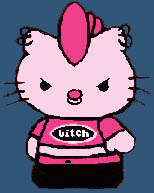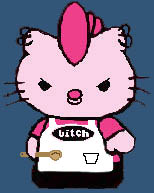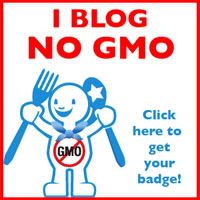Healthy Eating
Anyone who spends any time at all reading this blog knows I love food. The very definition of an omnivore, I am not a picky eater. However, as I've gotten older and my metabolism has slowed and my body has started to pick up creaks and aches and things just don't work as smoothly as they did when I was 19, I've had to put a bit more thought into what I'm eating and why.
When I was a kid my mom tried to get on a heath food kick on more than one occasion. Casting around in an effort to keep her children healthy, she bought cereals like Body Buddies ("Fortified with 16 Vitamins and Minerals!"), tried to limit chocolate by substituting carob (I'd rather skip chocolate altogether than pretend I'm eating chocolate by eating carob instead) and some downright crazy things like substituting Caro clear corn syrup for artificial maple-flavored pancake syrup (the only explanation I can come up with for this one is that she was trying to go "natural" but couldn't afford pure maple syrup). Though I have now become an eggplant fan in adulthood, my mom will never let us live down the time my brother and I turned our noses up at her attempt to make eggplant lasagna. Mom did what she could in the wilds of Minnesota and without the benefit of Google to find answers to her questions, but if we didn't grow up eating fast food, potato chips, Twinkies, and soda it was healthy eating forced on us by poverty. Where poverty kept chips and soda out of my hands, it also denied me fresh produce, whole grains, and real butter (apples and carrots, since they kept well, were the fresh fruits and vegetables of my childhood).
Two items are currently working their way to the top of my "food concerns" list. One is hydrogenated oil. Hydrogenated oils first came to my attention through Bruce Cordell, whose essay Artificial Fats Are Killing You can be found on his webpage. We used to be advised to avoid or reduce consumption of saturated (or animal) fats. Nutrition labels appeared, listing not just the total fat but the percentage of saturated fat per serving. In January 2006, the FDA added trans fats to the list of things that need to be called out on nutrition labels. Trans fats and saturated fats are the main dietary factors in raising blood cholesterol. Not only that but, as Cordell points out,"When you eat a trans fatty acid, your body incorporates it into your cells--your cells actually become hydrogenated." Eww. Unfortunately, hydrogenated oils (and their accompanying trans fatty acids) are all over the place! Not just lurking in a tub of margarine, but in those "Fat Free" Ry Krisp crackers I bought. The third ingredient: partially hydrogenated soybean oil (though the label assures us that it "adds a trivial amount of saturated and trans fat").
The second ingredient on my watch list is high fructose corn syrup. HFCS is another one of those ingredients that seems to be in everything. Sodas and fruit juice drinks are loaded with the stuff, but it's in your bread and hot dog buns, your corn flakes, your ketchup, those saltine crackers, applesauce, spaghetti sauce... Health professionals advise people to avoid foods that have HFCS listed in the first five ingredients. Consumption of HFCS is implicated in Americans' increasing instances of obesity and diabetes, and researchers are compiling data from human and animal studies that show HFCS can "induce insulin resistance, impair glucose tolerance, produce high levels of insulin, boost a dangerous type of fat in the blood and cause high blood pressure". With so many potential risks and nothing to recommend HFCS (except the economic benefits for companies that use this cheap sweetener), I just don't see a reason to keep eating the stuff.
When I was a kid my mom tried to get on a heath food kick on more than one occasion. Casting around in an effort to keep her children healthy, she bought cereals like Body Buddies ("Fortified with 16 Vitamins and Minerals!"), tried to limit chocolate by substituting carob (I'd rather skip chocolate altogether than pretend I'm eating chocolate by eating carob instead) and some downright crazy things like substituting Caro clear corn syrup for artificial maple-flavored pancake syrup (the only explanation I can come up with for this one is that she was trying to go "natural" but couldn't afford pure maple syrup). Though I have now become an eggplant fan in adulthood, my mom will never let us live down the time my brother and I turned our noses up at her attempt to make eggplant lasagna. Mom did what she could in the wilds of Minnesota and without the benefit of Google to find answers to her questions, but if we didn't grow up eating fast food, potato chips, Twinkies, and soda it was healthy eating forced on us by poverty. Where poverty kept chips and soda out of my hands, it also denied me fresh produce, whole grains, and real butter (apples and carrots, since they kept well, were the fresh fruits and vegetables of my childhood).
Two items are currently working their way to the top of my "food concerns" list. One is hydrogenated oil. Hydrogenated oils first came to my attention through Bruce Cordell, whose essay Artificial Fats Are Killing You can be found on his webpage. We used to be advised to avoid or reduce consumption of saturated (or animal) fats. Nutrition labels appeared, listing not just the total fat but the percentage of saturated fat per serving. In January 2006, the FDA added trans fats to the list of things that need to be called out on nutrition labels. Trans fats and saturated fats are the main dietary factors in raising blood cholesterol. Not only that but, as Cordell points out,"When you eat a trans fatty acid, your body incorporates it into your cells--your cells actually become hydrogenated." Eww. Unfortunately, hydrogenated oils (and their accompanying trans fatty acids) are all over the place! Not just lurking in a tub of margarine, but in those "Fat Free" Ry Krisp crackers I bought. The third ingredient: partially hydrogenated soybean oil (though the label assures us that it "adds a trivial amount of saturated and trans fat").
The second ingredient on my watch list is high fructose corn syrup. HFCS is another one of those ingredients that seems to be in everything. Sodas and fruit juice drinks are loaded with the stuff, but it's in your bread and hot dog buns, your corn flakes, your ketchup, those saltine crackers, applesauce, spaghetti sauce... Health professionals advise people to avoid foods that have HFCS listed in the first five ingredients. Consumption of HFCS is implicated in Americans' increasing instances of obesity and diabetes, and researchers are compiling data from human and animal studies that show HFCS can "induce insulin resistance, impair glucose tolerance, produce high levels of insulin, boost a dangerous type of fat in the blood and cause high blood pressure". With so many potential risks and nothing to recommend HFCS (except the economic benefits for companies that use this cheap sweetener), I just don't see a reason to keep eating the stuff.






Interesting post Nicole.
The trans-fats issue has come up recently in Europe
Some countries (Sweden I think?) have made trans fats totally illegal as their links to cancer are sufficiently 'prooven' to warrent a ban.
The UK has said that you should not consume 'too much' but haven't set any hard regulation about this. Interestingly McDonalds is one of the leading food companies in the UK to be actively reducing the trans-fat content of its food. I understand that this is not the case in McDonalds US.
I had a good conversation with some Australians whilst I was over in Vegas this year, where we discussed how sweet American food generally is. Corn syrup has a particular taste that isn't very common in UK or Australian foods- it's hard to describe, but is quite distinctive. Over here we are much more likely to use a combination of salt and sugar to mess up our foods. A particular source of confusion is American bread- which is very airy and sweet compared to what we're used to.
If I'm over for more than a couple of days I end up craving 'proper' bread and vegetables. Salads that aren't drowned in sweetened dressing, and bread that hasn't got that strange whipped margerine are particularly fine- as you've seen me say!
I'm not sure if the corn syrup is added because the American tooth is considered sweet, because it's cheap or to cover up sub standard ingredients. (probably all) Its possible that its there to aid preservation- Paul recently commented that there is a donut in the vending machine where he works that won't go out of date until 2009!
What's certainly true looking at American supermarkets is that alot seems to be about presentation rather than taste. Size and colour of veg seems to win out over quality. I've heard that Organic fare and local produce is making a resurgence in the U.S- and I'm heartily glad.
I have to say my approach when eating in the U.S so far has definately been, either enjoy the guilty pleasure (US pancakes are surely the finest breakfast going)go to good quality restraunts (like the fish place in Indianapolis) or be lucky enough to enjoy good home cooking.
Aside from the horrendous price, how do you get on when you come over to the UK?
Sugar, fat, and salt all make a foodstuff taste good (or better) for most humans. None are good for you in excess.
The main alternative to high-fructose corn syrup is sucrose (table sugar), typically from sugar cane or sugar beet. However, the floor on sugar prices in the U.S. (to subsidize farmers who drain our southern swamplands--but I digress) means that we Americans don't have access to cheap sugar from developing countries.
I agree entirely with Kate that breads in the U.S.--especially unsliced loaves--are largely inferior to what is available at most any supermarket in Europe.
I do alright with the food in the UK when I'm there, except if I've taken one too many meals in the GW canteen (in all its ____ Pie glory). I will admit, I adore taking tea and biscuits in the hotel.
Safeway recently introduced a line of organic foods, making organic choices (aside from fresh fruits and vegetables) more widely available to everyday shoppers. The organic brands are where you can be relatively sure of avoiding GMOs and Bovine Growth Hormone, etc. Many times you can avoid trans fats as well. Not sure how the organics fall in on the HFCS issue, though.
Much as with the recycling issue, I'm fortunate to live in a city that is generally very aware and progressive by American standards.